Books
We need to have a vibrant reading culture
Rajan Prasad Pokharel talks about his upcoming work, favourite writers, and the prospect of English literature in Nepal.
Anish Ghimire
A literature devotee at heart, Rajan Prasad Pokharel is a professor at Tribhuvan University and has published several books, including ‘Rebels of the Mountains’ (2011) ‘Beyond the Life Lines’ (2011), ‘Between Roars and Rigors’ (2011) and ‘The Sufferer’s Message’ (2014).
Pokharel is also an essayist who writes about the history and societal issues of Nepali society. He began his career by publishing his collection of essays titled, ‘An Intellectual Burden’ (1993). This was followed by ‘Other Essays’ (1993) and ‘Life and Literature’ (2003). Along with that, he has also edited several magazines like ‘Ubhaar from Dharan’ (1996) and academic journals including ‘Pursuits’ (2010).
In an interview with the Post’s Anish Ghimire, Pokharel talks about his upcoming works, favourite writers, and reading culture in Nepal.
When did you start reading literature? What are some of the first books you remember liking?
I developed a reading habit pretty early on, and it has still stuck with me. In fact, I read professionally now.
My obsession with reading got even stronger in my 20s. Some books I read during this time that further solidified my love for the activity were the brilliant poetry collections by Laxmi Prasad Devkota, ‘Basai’ by Lil Bahadur Chettri and ‘The Stranger’ by Albert Camus.
Is there such a thing as a good book or bad book?
That, I think, mainly depends on the readers and their preferences.
However, if a book fails to arouse interest in its readers despite their initial excitement, those books aren’t worth reading. A major reason this happens is if the writing is bland and the narrative isn’t clear. If a writer has gone the extra mile to research extensively and edited their text numerous times, then most often than not, the book turns out to be pretty interesting.
Is your writing style inspired by any particular author?
The works of poet Santosh Kumar Pokharel have influenced me a great deal. I find his work touching and his writing immersive. Even though he is an engineer by profession, his contribution to literature is admirable.
Another person who has inspired my writing style is Uddhav Rai. His recently published book ‘Koshi Kinar Ka Paila Haru’ exemplifies how good a writer he is.
Besides them, I constantly take inspiration from anything and everything I read.
You’ve stayed in Canada for over a decade. What is the difference between the reading culture there and in Nepal?
From what I have seen, Canadians greatly respect time. They are very productive and utilise it very well. I see most people on the bus or trains reading. No matter how busy they get, many Canadians make the time to read. People there seem to enjoy reading a lot too. I don’t see such hunger towards books in Nepalis. I think it has gotten more difficult for people to sit down and focus on a singular task like reading as it needs all your attention.
Are you working on another novel right now?
Yes, I am. I’ve decided to take a break from writing in English. I am working on a Nepali novel right now. It is called ‘Samayako Autograph,’ and I plan to publish it in a few months.
In today’s time, do you think book readers are becoming a rare thing?
It is obvious that people are being distracted from reading books. Social media is taking up the time, effort, and concentration that would normally be dedicated to reading books. The trend is depleting for sure, but there are still some readers left. I am happy to see many young people call themselves avid readers. My motto—and one I wish everyone else had—is that reading is to the brain what exercise is to the body.
What issues do you want to see writers cover more?
There aren’t many texts addressing the generational gaps and the problems it brings about. So, I want writers to cover this. Also, social and political clashes, gender issues, and subaltern issues should be written and read more.
What is the prospect of English literature in Nepal?
Many Nepali writers are writing in English these days. Younger Nepali readers, in particular, are more drawn to English-language novels.
However, as of now, the future of English literature by Nepali writers looks grim. Not many Nepalis opt to read English texts written by a Nepali writer. Sales of these books don’t look that promising. So, publishing houses aren’t inclined to put out such books.
Rajan Prasad Pokharel’s book recommendations:
Koshi Kinarka Paila Haru
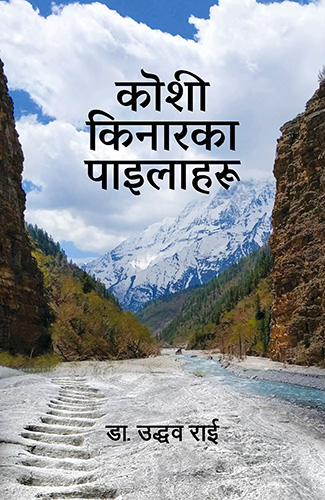
Author: Uddhav Rai
Year: 2023
Publisher: Book Hill Publication
The way Koshi Kinarka Paila Haru is written is unique and very interesting. Among the books I’ve read this year, it is one I had a lot of fun reading.
Shikharko Dhunga
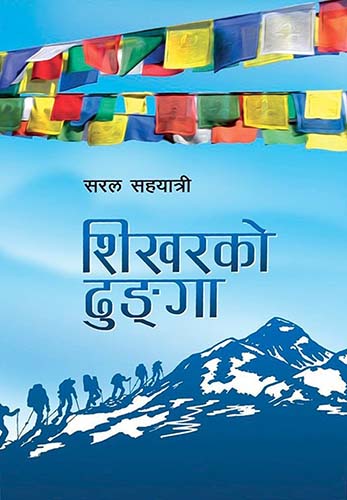
Author: Saral Sahayatri
Year: 2019
Publisher: Sangri-la Books
This was an unforgettable read. I enjoyed Sahayatri’s descriptions of the landscapes a lot. I felt like I was in the mountains while reading the book.
Maharani
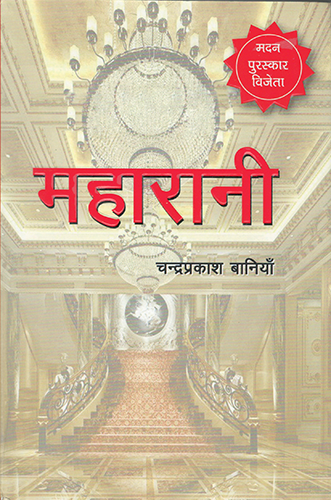
Author: Chandra Prakash Baniya
Year: 2019
Publisher: Shikha Books
Maharani is a historical novel that features the story of a royal family. It accurately portrays Parbat district’s political climate, legal system, and lifestyle.
Urgenko Ghoda
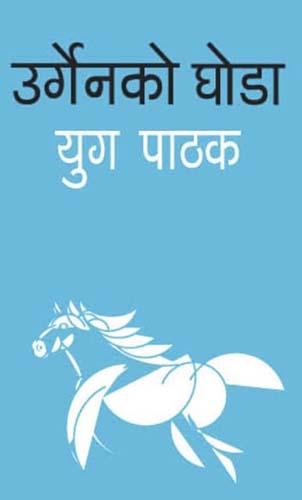
Author: Yug Pathak
Year: 2010
Publisher: FinePrint
This is another historical fiction based on the civil war. It gives us insight as to just how lethal the war was. I recommend Urgenko Ghoda to young people.
Seto Dharti
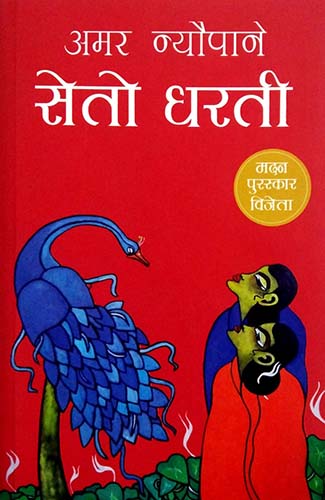
Author: Amar Neupane
Year: 2012
Publisher: FinePrint
Seto Dharti exemplifies how difficult life can get for a woman because of societal and religious norms. This is another must-read for the younger generation.
Himali Darshan
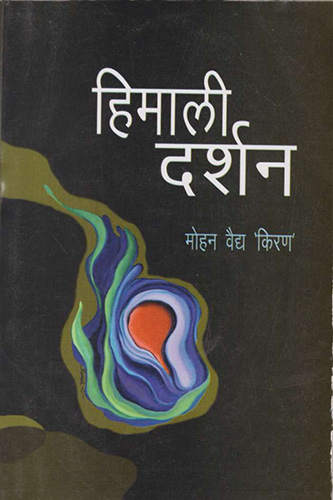
Author: Mohan Baidhya
Year: 2018
Publisher: Sami Shahitya Pratisthan
As an avid reader of philosophy, I enjoyed going through this book. I recommend Himali Darshan to my students as well.




 9.7°C Kathmandu
9.7°C Kathmandu










